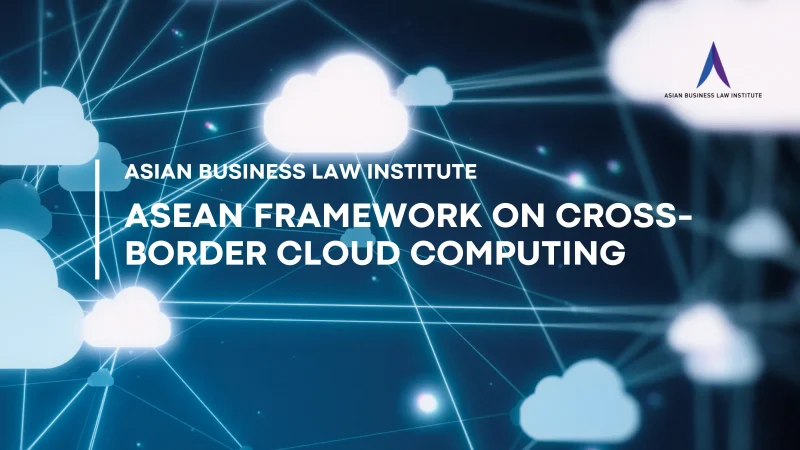Singapore: Minority Shareholder Rights & Oppression
A Brief Overview
Minority shareholders of companies in Singapore are generally shareholders with a non-controlling stake of less than 50% of a company’s voting shares.
Shareholders of a company who hold less than 50% of the company’s voting shares are considered minority shareholders. These group of shareholders are vulnerable to oppression by the controlling shareholders of the company.
One such example is minority shareholders can simply be outvoted in shareholder meetings, leaving them with little or no say in the company’s affairs, which may be constituted as unfairness.
This can lay the foundation for minority shareholders to commence legal action for the purpose of obtaining relief.
What are the rights of minority shareholders in Singapore
In Singapore, shareholders’ general rights are set out in the constitution of the company and apply to holders of ordinary and preferred shares.
Preferred shareholders may have additional rights as set out in the constitution.
In Singapore, shareholder rights in private limited companies are also governed by common law under the Companies Act.
Shareholders, in general, have the following rights (among others):
- A right to have the provisions of the constitution observed by every other shareholder and the company, and the right to apply to Court to restrain an impending breach of the constitution or to set aside an act which has been committed in breach of the constitution.
- Access to company information: registers and records, such as registers of Directors, Managers, Auditors, Debenture Holders, shareholdings of various officers in the company such as the CEO and Management team
- Right to bring legal proceedings against or on behalf of the company
- Access to the companies audited financial statements
- Right to call for a general meeting, and to call for a poll vote on any resolution during a meeting
- Right to prevent a general meeting being held on short notice
What constitutes as oppression against minority shareholders
Common disagreements between shareholders are generally considered to be insufficient grounds to constitute minority oppression by the courts.
It is also worth noting that oppression may be considered as a single act, or as a sequence of actions or oppressive conduct over a prolonged period of time, as highlighted by The Singapore Court of Appeal in “Over & Over Ltd v Bonvests Holdings Ltd [2010] SGCA 7”.
Although prejudice is a factor, and perhaps, a very important one in the overall assessment of the merits of a matter, commercial unfairness is the touchstone by which the court determines whether to grant relief under section 216 of the Companies Act.
In other words, behaviour on the part of the majority shareholders or the controllers of a company that departs from the standards of fair play amongst commercial parties is considered to be oppressive, according to a law firm in Singapore.
Below are some examples of acts that have triggered minority protection remedies or actions:
- Actions taken to devalue or dilute minority shareholdings
- Unfairly diverting company income to the majority shareholders through pay raises, bonuses, or personal expenses rather than as dividends to shareholders
- Withholding of information that shareholders have the rights to, such as company registers and records
- Unfair termination and/or exclusion from management
What Can Be Done By Companies To Prevent Oppressive Behaviours Or Claims
Disagreements between shareholders are inevitable when conducting business, therefore it is important for all parties to implement safeguards to prevent future:
- Oppressive behaviour from majority shareholders
- Oppression claims from minority shareholders
One of the most widely accepted ways to avoid shareholder disagreements is to have a shareholder’s agreement that will outline how potential future disputes are to be resolved.
Greater Scrutiny For Quasi Partnerships
However, in Asia, it’s common for companies (quasi-partnerships) to be formed on the basis of mutual trust and confidence, with an understanding that they will all participate in decisions made for the management of the business.
The affairs of such companies are typically conducted in an informal manner, with a lack of written agreements to outline how future disputes should be resolved.
The Singapore Courts have consistently applied a stricter yardstick of scrutiny because of the increased vulnerability of minority shareholders in such companies, due to the informal nature in which business is conducted in such companies.
The legal remedies available for victims of minority shareholder oppression in Singapore
The Singapore courts have wide discretionary powers of the under
section 216 of the Companies Act and may order any remedy which it deems appropriate to provide relief to the complainant(s).
The Court may make an order that may:
- direct or prohibit any act or cancel or vary any transaction or resolution;
- regulate the conduct of the affairs of the company in future;
- authorise civil proceedings to be brought in the name of or on behalf of the company by such person or persons and on such terms as the Court may direct;
- provide for the purchase of the shares or debentures of the company by other members or holders of debentures of the company or by the company itself;
- in the case of a purchase of shares by the company provide for a reduction accordingly of the company’s capital; or
- provide that the company be wound up.
What should you do if you’re a victim of minority shareholder oppression in a company?
If you feel that you’ve been unfairly treated as a minority shareholder in a company, it’s best to consult a lawyer that specializes in Company Law, or minority shareholder oppression in Singapore.
Your lawyer will then be able to advise you on the best course of action, and based on the merits of your case, advise you if you even have a fair chance at obtaining a favourable judgement for your matter.

